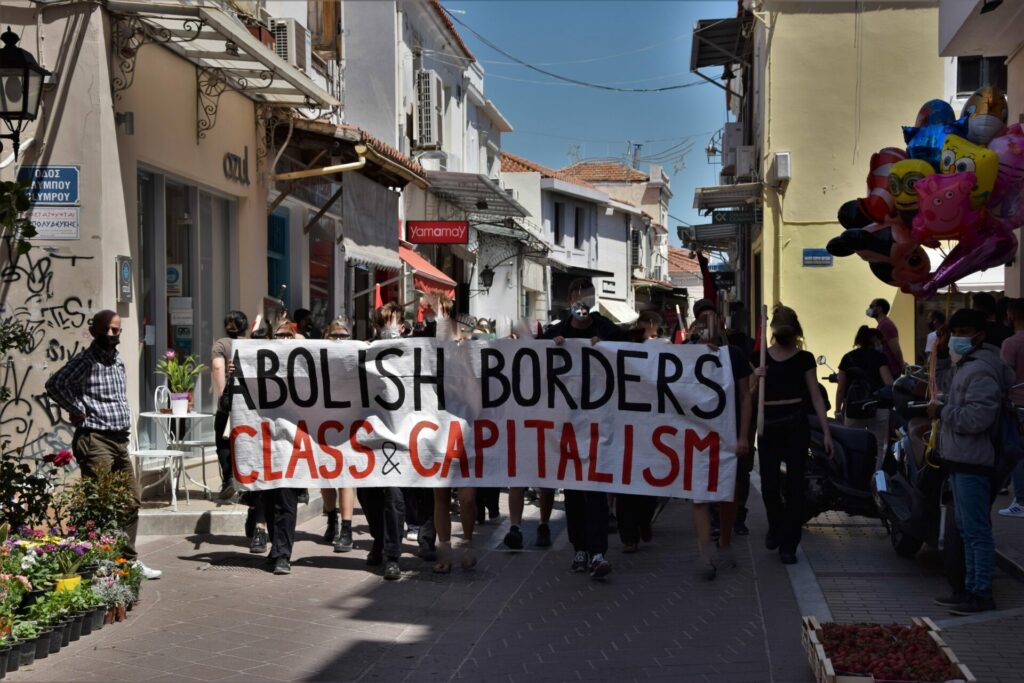Footage has emerged of a young Syrian refugee who was shot with live ammunition by Bulgarian border guards when trying to cross the European Union (EU) external border.
A collaborative journalism project by Lighthouse Reports, involving various news organisations, obtained and verified what is reportedly the first-ever footage of a refugee being shot at the Bulgaria-Turkey border on 3 October this year. The 19-year-old young man, named Abdullah, was trying to enter Bulgaria in the hope of claiming asylum.
"We interviewed Abdullah, who received life-changing injuries to his hand and arm. A medical report states that the bullet passed through his hand and entered his chest, lodging 1cm from his heart," Sara Creta, who played a major role in the investigation, said on Twitter. "He believes Bulgarian guards shot him with the intention to kill."
Abdullah was forced to flee his country multiple times, and in recent years, tried to seek protection in Europe. However, he was repeatedly — and illegally — pushed back by EU border officials. "This video unveils new evidence that demonstrates — once again — how at EU's borders, refugees are denied their basic rights," Lighthouse Reports noted.
Confirming video footage
As Abdullah was trying to cross the border together with a group of people, they were pushed back. Footage shows some of them throwing stones at the Bulgarian border in protest, documents the shooting taking place, and shows Abdullah falling to the ground. His hand reaches to his armpit, which is soon covered in blood.
Warning: Graphic content
Forensic analysing of the footage, which was corroborated by eyewitness accounts, confirmed that the shot came from the exact spot where Bulgarian guards were standing.
"We sourced phone videos from witnesses standing near Abdullah. They show two vehicles on the Bulgarian side: one is a Land Rover used by Bulgarian border police, the other a Bulgarian army truck," Creta noted. Bulgarian border police are reinforced by soldiers as the country has been about an increase in migrants at the EU's external border with Turkey.
Meanwhile, the footage was also analysed by an audio forensic expert, who found that, based on the waveform and spectre of the file, the sounds were consistent with a muzzle blast from a small firearm fired in the direction of the person recording, facing the Bulgarian border.
He also noted there was likely a "large object" directly behind the shooter, which was confirmed by video footage, showing a shelter was located next to the vehicles. The audio analysis also latched a medical report, which showed that the bullet passed through his hand and entered his chest, lodging a centimetre from his heart.
Extending Schengen
In response to the allegations, Bulgarian border police told Lighthouse Reports that they were present when the shooting took place, but they denied that the bullet was fired from their side. “In connection with this incident, a fact-finding inquiry has been carried out, which shows that no shots were fired from our side.”
Meanwhile, a statement from Bulgaria's Home Affairs ministry argued that 65 people "tried to cross the border illegally" and were acting "aggressively."
The revelation comes ahead of the EU Justice and Home Affairs Council's vote on Thursday on Bulgaria's accession to the Schengen zone (alongside Romania and Croatia) without internal border controls.
Related News
- EU funding of Rwandan military called into question amid DRC violence
- Lawyers mourn Rule of Law as Belgium fails to observe rulings
"This is a timely reminder of persisting violence at the EU's borders ahead of this decision," Jelena Sesar, Researcher at Amnesty International, said.
Last month, the Commission stated that Bulgaria "demonstrates a strong commitment to border surveillance and effectively copes with high migration pressure."
It added that Bulgaria "also demonstrated that it has the necessary structures in place to ensure respect for fundamental rights, guaranteeing access to international protection, respecting the principle of non-refoulement," a principle which guarantees that "no one should be re- turned to a country where they would face torture, cruel, inhuman or degrading treatment or punishment and other irreparable harm."

